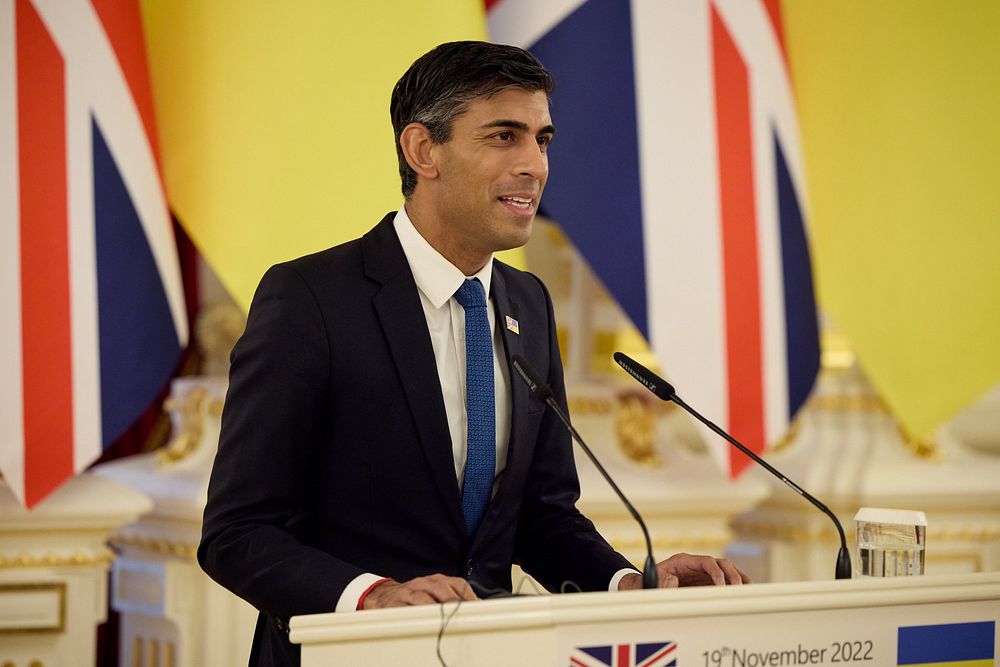At Bletchley Park, the UK AI Summit has begun, drawing together top tech CEOs and political leaders such as Sam Altman from OpenAI, US Vice President Kamala Harris, Tesla’s Elon Musk, and many more. It promises to be an impressive gathering. Let’s discuss the points Was The UK AI Summit Too Focused On Big Tech?
Workers groups and data-protection advocates fear the AI Summit is overly focused on future risks; such concerns distract from creating meaningful regulations to mitigate existing ills caused by AI tools – bias against marginalized groups and cyber-attacks, among others.
What happened at Bletchley Park?
On Thursday, the UK AI Summit at Bletchley Park, home to World War II codebreakers, concluded. Participants in this international initiative to regulate cutting-edge AI systems and prevent them from being misused in harmful ways were widely praised. Michelle Donelan, UK technology secretary, has been given the responsibility for leading this effort, though given America’s perceived lead on this matter, it may prove challenging.

President Biden issued warnings against tech firms deploying unsafe AI systems, with Kamala Harris proposing an executive order requiring companies to submit them for government testing. Donelan attended a summit alongside tech execs and global leaders and is seeking the creation of an international body similar to the Intergovernmental Panel on Climate Change to oversee AI use.
Elon Musk – who heads X, the research company that owns Tesla – brought glamour to the event but overshadowed Donelan’s calls for an independent watchdog. However, his idea that frontier AI poses risks to democracy, civil rights, and safety was widely shared by numerous other figures and should not be dismissed outright as “fearmongering”.
The competition between government and AI firms
The UK is placing much on its AI Summit. It aims to become a leader in human-centric, trustworthy, and responsible AI development – the first nation ever to host such an event. Critics, however, say this meeting missed an opportunity to address AI’s wider impacts on workers, small businesses, and police forces.
Concerns surrounding AI technology are valid, with experts asserting that advanced AI can threaten privacy and place people in harm’s way if misused by bad actors. As a result, governments around the world have raced to create safeguards and regulations to govern it.
One of the key outcomes of the Bletchley Summit was the creation of an expert AI panel modelled on the IPCC, designed to facilitate a shared understanding of risk. Major tech companies also agreed to partner with governments in testing frontier AI models before their release to reduce any unforeseen problems that might arise from them.
However, its long-term implications remain uncertain. Other nations have pursued AI regulation separately, with the US publishing an executive order on domestic AI regulation and China passing new laws for DALL-E 3 systems that create images and text for malicious use.
The world-leader contingent
Even with its high-profile attendees, the UK AI Summit may miss its mark. According to some, its primary focus — frontier AI — which refers to highly capable foundation models with potentially harmful abilities — may not be where its focus needs to be. Critics allege that real harms caused by the current use of AI tools — surveillance of marginalized groups, hiring bias in hiring and housing situations, and the spread of misinformation — must be the main priority for policymakers.
The UK government, led by Science Minister Jo Johnson, should place priority on preventing existential threats and creating enforceable safeguards for AI systems currently used widely in society. But these issues must also be considered within a broader framework of global inequality, climate change, and cyber-attacks.
It is for this reason that the UK’s decision to invite think tanks, universities, and select governments (such as China) was so pivotal; similarly, the EU’s forthcoming AI act will require companies to disclose how and why they use data collected, while US counterpart Joe Biden issued an executive order designed to provide similar safeguards within federal agencies.

The future of AI
As the UK government attempts to position itself as AI’s champion or promoter, other nations are making strides toward agreeing upon meaningful regulations for this technology. Therefore, it’s vital for Britain not to go backwards by creating its own set of laws; new ones could slow innovation while diminishing the efficacy of any future policies.
That is why the UK government should accept and embrace the OECD’s proposed redlines on AI usage, such as prohibiting its use for applications like social scoring and mass surveillance. Furthermore, they should encourage countries to endorse an international body similar to the Intergovernmental Panel on Climate Change that will oversee regulation across borders for AI technology.
The summit itself hasn’t exactly set an example of inclusivity either, with an exclusive invite list consisting mostly of think tanks and universities as compared to select governments (such as China) and AI firms. Workers’ organizations and rights activists have struggled to make themselves heard; both the UK Trades Union Congress and Amnesty International have requested that Sunak create an event more inclusive in this way.
At this summit, former Deputy Prime Minister Nick Clegg will serve as a twinned voice, offering both insights from his time in politics as well as his current employment at Meta, the company formerly known as Facebook’s X division. Other attendees include billionaire Elon Musk, who will engage in a livestream conversation about Clegg’s new company XAI with Clegg present.
What is the UK AI Summit? – The UK AI Summit is an event or conference that brings together stakeholders, professionals, and specialists to speak about and discover topics related to synthetic intelligence (AI) inside the context of the United Kingdom.
Was the United Kingdom AI Summit criticized for being too centred on Big Tech? – There might be criticisms suggesting that the United Kingdom AI Summit disproportionately targeted Big Tech organizations, probably sidelining discussions of smaller players or numerous perspectives inside the AI landscape.
Why is the point of interest in Big Tech a potential difficulty? – Focusing mainly on Big Tech may forget improvements and views from smaller groups, startups, and research institutions, proscribing the range of ideas and solutions in the AI area.
What are a few capability consequences of a Big Tech-centric cognizance at the AI Summit? – Consequences may also encompass a lack of representation for smaller players, neglected opportunities for collaboration, and a capacity slender recognition of AI programs that align with the pursuits of major tech companies.
Were there specific problems or topics that have been overshadowed with the aid of the focal point on Big Tech? – It’s viable that discussions about moral considerations, regulatory frameworks, and the societal impacts of AI might also have been overshadowed if the summit became too targeted on Big Tech’s pastimes.
How can a greater inclusive method be carried out in AI summits and conferences? – Achieving a more inclusive approach involves actively searching for various voices, making sure illustrations from numerous sectors, and addressing a huge variety of topics beyond the pursuits of main businesses.
stay tuned for the latest information about tech and innovations at Technofash. For more detailed information you can visit here⎇